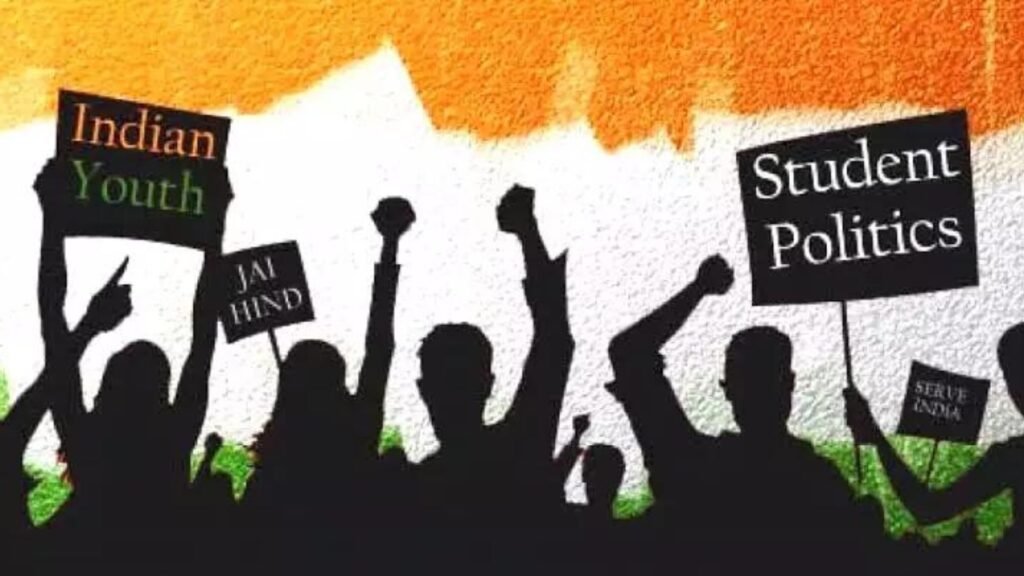The role of youth in modern politics is increasingly significant, with young people playing a crucial part in shaping social movements, influencing voting trends, and driving policy changes. Their engagement and activism are transforming political landscapes across the globe. Here’s a look at how youth are making an impact in contemporary politics.

Driving Social Movements
Young people are at the forefront of many social movements, advocating for issues ranging from climate change and racial justice to gender equality and LGBTQ+ rights. Their activism is often fueled by a deep sense of urgency and a desire for systemic change.
For example, movements like Fridays for Future, led by Greta Thunberg, highlight youth-driven efforts to address climate change and demand more ambitious environmental policies. Similarly, youth-led organizations like Black Lives Matter have been pivotal in advancing discussions about racial justice and police reform.
These movements often leverage social media to organize protests, spread awareness, and mobilize support. By harnessing digital platforms, young activists can reach a global audience and drive significant political and social change.
Influencing Voting Trends
Youth participation in elections has a substantial impact on voting trends and political outcomes. Young voters often bring fresh perspectives and priorities to the political arena, influencing the focus of campaigns and the platforms of candidates.
In recent elections, youth turnout has increased, with younger generations showing a greater interest in politics and a willingness to engage in the electoral process. Issues such as student debt, job opportunities, and climate policy are particularly relevant to younger voters, who often prioritize these topics when casting their ballots.
Political parties and candidates are increasingly recognizing the importance of addressing youth concerns and tailoring their platforms to appeal to younger voters. This shift reflects the growing influence of youth in shaping electoral outcomes and policy discussions.
Advocating for Policy Change
Youth advocacy has led to significant policy changes in various areas. Young people often champion issues that are crucial for their future, such as climate action, education reform, and mental health services. Their advocacy efforts can lead to tangible policy changes at local, national, and international levels.
For instance, youth-driven campaigns have pushed for reforms in education systems to make them more inclusive and accessible. Additionally, young activists have been instrumental in advocating for mental health awareness and increased funding for mental health services.
By engaging in advocacy, youth can influence lawmakers and policymakers to prioritize issues that affect their generation and drive the development of more responsive and effective policies.
Utilizing Technology and Social Media
The use of technology and social media has revolutionized how youth engage in politics. Digital tools enable young people to organize, mobilize, and communicate more effectively than ever before. Social media platforms provide a space for raising awareness, rallying support, and fostering discussions on political issues.
Youth-driven digital campaigns and online petitions have become powerful tools for advocating change and influencing public opinion. Platforms like Twitter, Instagram, and TikTok are often used to amplify voices, share information, and create viral content that can impact political discourse and policy.
Participating in Grassroots Organizing
Grassroots organizing is another area where youth play a significant role. Young people are often involved in local community efforts, including organizing events, leading campaigns, and participating in advocacy groups. Their grassroots activities help address local issues and build a foundation for broader political engagement.
Youth-led grassroots organizations work on a range of issues, from community development and voter registration to public health and environmental conservation. Their involvement in these activities strengthens community ties and promotes civic engagement.
Challenging Traditional Political Structures
Youth are challenging traditional political structures and norms by advocating for more inclusive and equitable systems. They often push for reforms that address systemic inequalities and promote greater representation of marginalized groups.
By questioning established practices and demanding changes, young people contribute to a more dynamic and responsive political environment. Their efforts help bring new ideas and perspectives into the political arena, leading to a more inclusive and representative democracy.
Building a Future Generation of Leaders
Engagement in modern politics also serves as a stepping stone for future leadership. Many young people who become involved in political activism and advocacy go on to pursue careers in public service, politics, and related fields.
By participating in politics early on, youth develop skills, knowledge, and networks that prepare them for future leadership roles. This active involvement helps cultivate a new generation of leaders who are committed to addressing contemporary challenges and shaping the future of governance.
Conclusion
In summary, the role of youth in modern politics is both dynamic and impactful. From driving social movements and influencing voting trends to advocating for policy changes and utilizing technology, young people are shaping the political landscape in significant ways. Their engagement fosters greater inclusivity, challenges traditional structures, and builds a foundation for future leadership. Recognizing and supporting the contributions of youth is essential for a vibrant and responsive democratic process.




